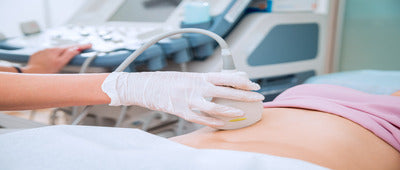In-vitro fertilisation (IVF) is a fertility treatment many people use to become parents. However, several factors determine the success rate — and one of the most important is egg quality.
This blog post will look at what egg quality is, how it’s measured and how it can be improved for IVF.
What is egg quality?
Egg quality is as important as egg quantity in a fertility treatment like IVF. The quality of an egg needs to be considered chromosomally normal (euploid) for it to be viable for pregnancy.
A healthy egg will have 23 chromosomes, which, when combined with the 23 in sperm, creates 46 in total. Eggs that don’t have these chromosomes are called aneuploids.
One of the best indicators of egg quality is age. The older you get, the more chance your eggs will be aneuploid. If you become pregnant with this type of egg, it could fail to implant or result in miscarriage.
Women over 35 have a higher chance of lower-quality eggs than younger women. Some women over 35 have fertility problems because their eggs aren’t the right quality for fertilisation and pregnancy.
Until the age of 35, around 70% of a woman’s eggs are chromosomally normal — but this decreases to 50% once you’re over 35. It then degrades even more to around 10–15% by age 40.
The lower the eggs’ quality, the less chance there is of a successful pregnancy naturally or with fertility treatment.

How is egg quality determined?
There are many ways to determine the quality of a woman’s eggs.
Anti-Mullerian Hormone test
One of the most used tests is the Anti-Mullerian Hormone (AMH) test.
The AMH test shows your levels of AMH, the hormone needed to support egg maturation. We can use AMH levels in the blood to estimate how many follicles are in the ovaries. The more follicles a woman has, the higher the chance of a successful pregnancy.
Follicle-stimulating hormone test
Clinics can use another test called a Follicle-Stimulating Hormone (FSH) test to measure the amount of this hormone released by the pituitary gland.
FSH increases ovarian follicles’ growth, which produces other hormones like AMH, oestrogen and progesterone — all of which are necessary for fertility. FSH also promotes healthy ovulation and egg maturation.
FSH levels will fluctuate daily throughout your menstrual cycle and will be at their highest point right before ovulation.
However, if the levels of FSH are higher or lower than expected, it could indicate fertility issues and decrease the chances of success with IVF.
Low levels of FSH could suggest irregular menstrual cycles, making conceiving difficult. However, high levels may mean the body is reacting to a decreased number of eggs and overcompensates in the hopes of ovulation.
While these tests don’t show the quality of each egg, they can indicate a generalised decreased quality, as the production of hormones and ovulation is abnormal.
Can egg quality be improved?
Many factors can impact your eggs’ quality, so it’s essential to consider them and see how you can manage them.
Some factors can’t be changed. For example, you can’t change an egg from an aneuploid to a euploid, nor can your age be reversed to enhance the quality of your eggs.
But you can increase your chances of high-quality eggs through various lifestyle changes to create a healthier body for a fertilised egg to develop in.

How to improve egg quality for IVF
When having IVF treatment, you’ll want to give yourself the best chance possible of successful treatment. A few simple lifestyle changes can help to improve your egg quality.
Maintain a healthy lifestyle
Creating a healthy body for your baby to grow and develop in is vital, and you want to start trying to do so before you begin IVF.
Sleeping well helps ensure your body restores energy and makes enough melatonin. The body needs melatonin for reproductive processes (among other things). Without it, it will struggle to produce high-quality eggs.
Exercise is also essential when improving egg quality as it increases the blood flow to your reproductive organs and reduces stress levels — helping your body to create a healthy egg and a healthy environment for development.
Avoid smoking and alcohol
If you smoke, you should consider giving up before starting IVF treatment. The nicotine in cigarettes is toxic to the cells in your body — including eggs — so stopping smoking can enhance the eggs’ quality.
Drinking alcohol is known to decrease fertility in women. Cutting it out entirely or reducing your intake could make a big difference.
Both alcohol and cigarettes can also cause harm to a fertilised embryo, so you want to do your best to remove them from your lifestyle.
Take fertility supplements
Taking fertility supplements could make a difference in the quality of your eggs. Supplements to help boost fertility include:
- Melatonin
- Omega-3
- Coenzyme Q10
- Vitamin B
- Zinc
Some supplements you should avoid while trying to conceive using IVF include the following:
- Echinacea
- St John’s wort
- Vitamin A
- Vitamin E
Too many of these nutrients could cause premature labour, meaning your pregnancy could be lost if you take these in excess.
If you want to know the supplements you should or shouldn’t take before IVF, your fertility consultant can advise you.
Manage stress
Stress can make it hard to conceive. When you are stressed, the body releases hormones (cortisol and prolactin), which can interrupt ovulation.
Try your best to minimise your stress levels t by taking care of your mental and physical health.
Adopt a fertility diet
Eating well before IVF can enhance your fertility. Fertility-boosting foods include:
- Citrus fruits
- Sunflower seeds
- Mature cheese (such as parmesan)
- Liver
- Full-fat dairy
- Beans
- Lentils
- Asparagus
- Oysters
- Pomegranate
- Egg yolks
These foods contain the right sorts of nutrients your body needs to be at its most fertile.
You want to avoid processed foods, excess carbohydrates and high amounts of sugar. One study found that eating many carbohydrates can impact the quality of your eggs, so you may want to limit carbs such as bread and pasta during this time.
Eating well means getting enough nutrients from your meals, which, in turn, creates a healthy body that can produce high-quality eggs.
Enhancing the quality of your eggs for IVF might seem easier said than done, but there are things you can do to help. From eating right to getting enough sleep, managing your health can help to improve egg quality.
If you have any fertility questions or are considering IVF, book a free consultation with our fertility specialists at IVF Matters — we’ll help you kick-start your fertility journey.






